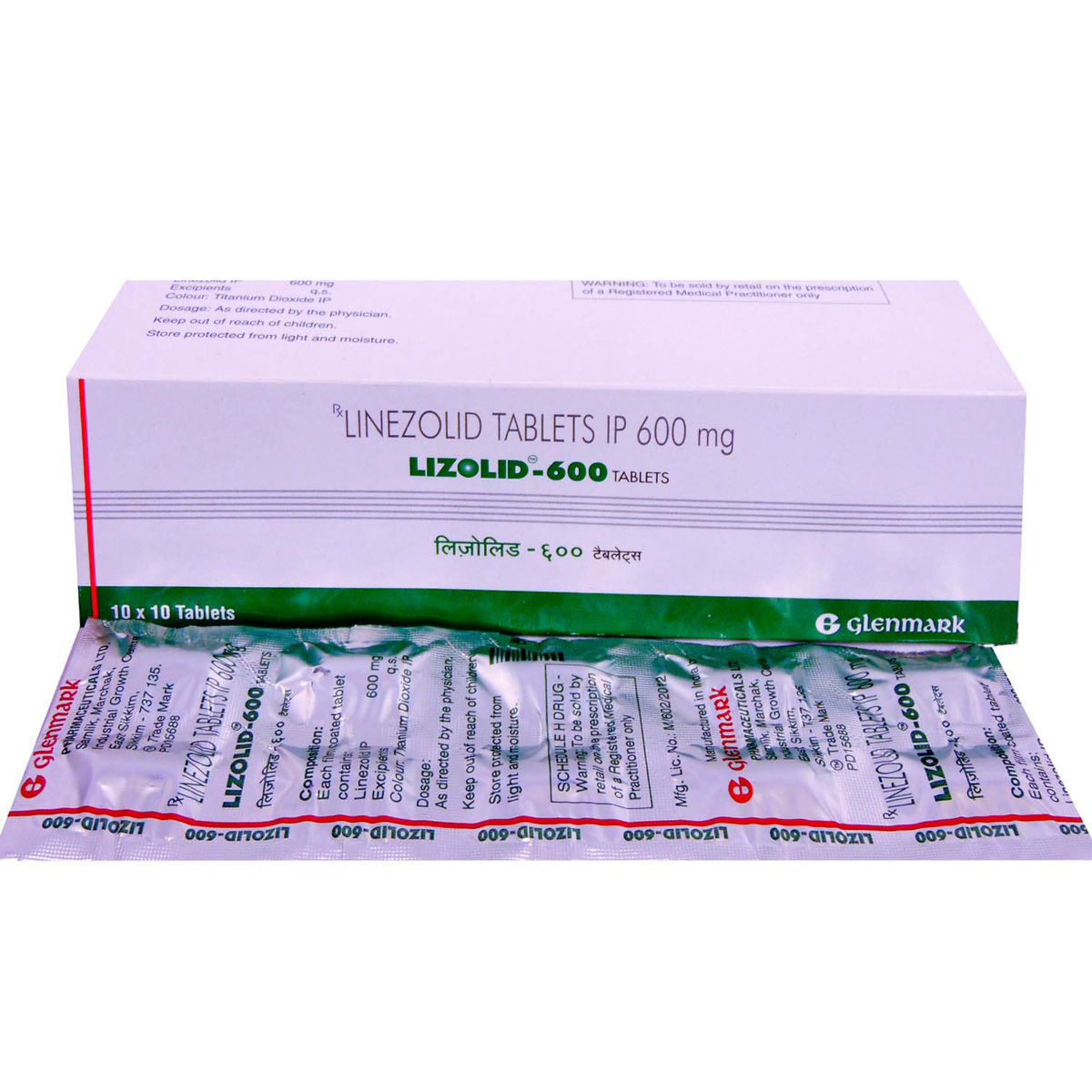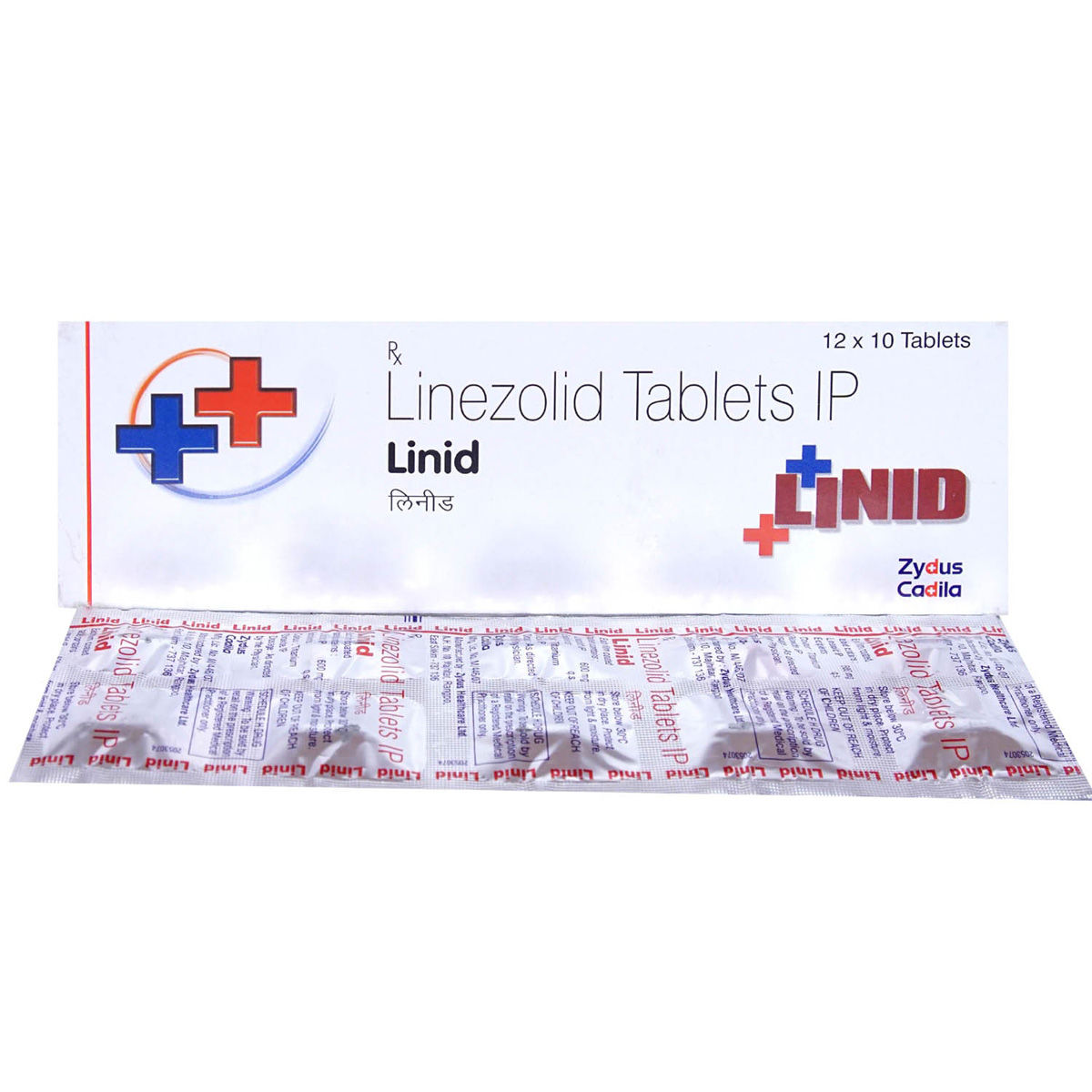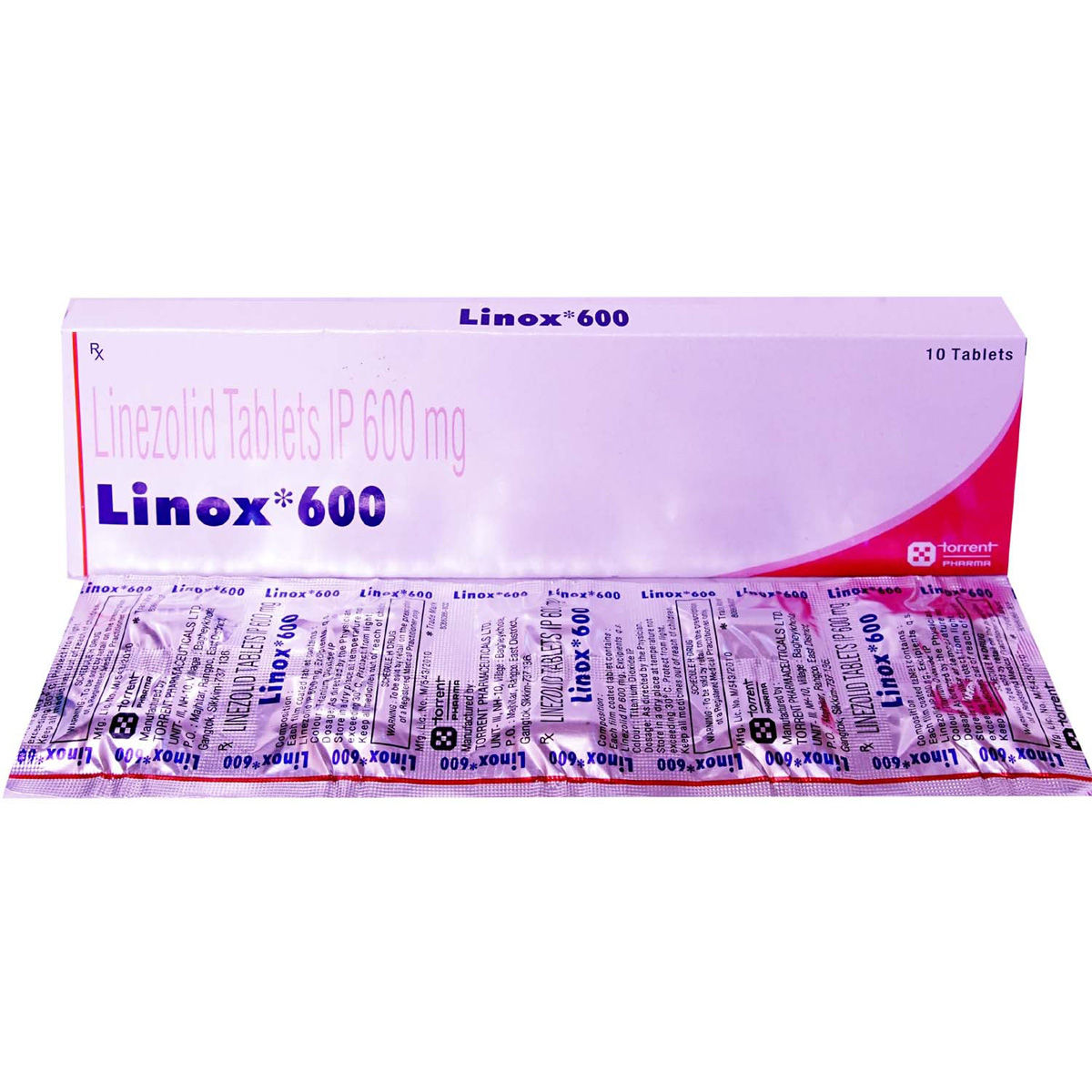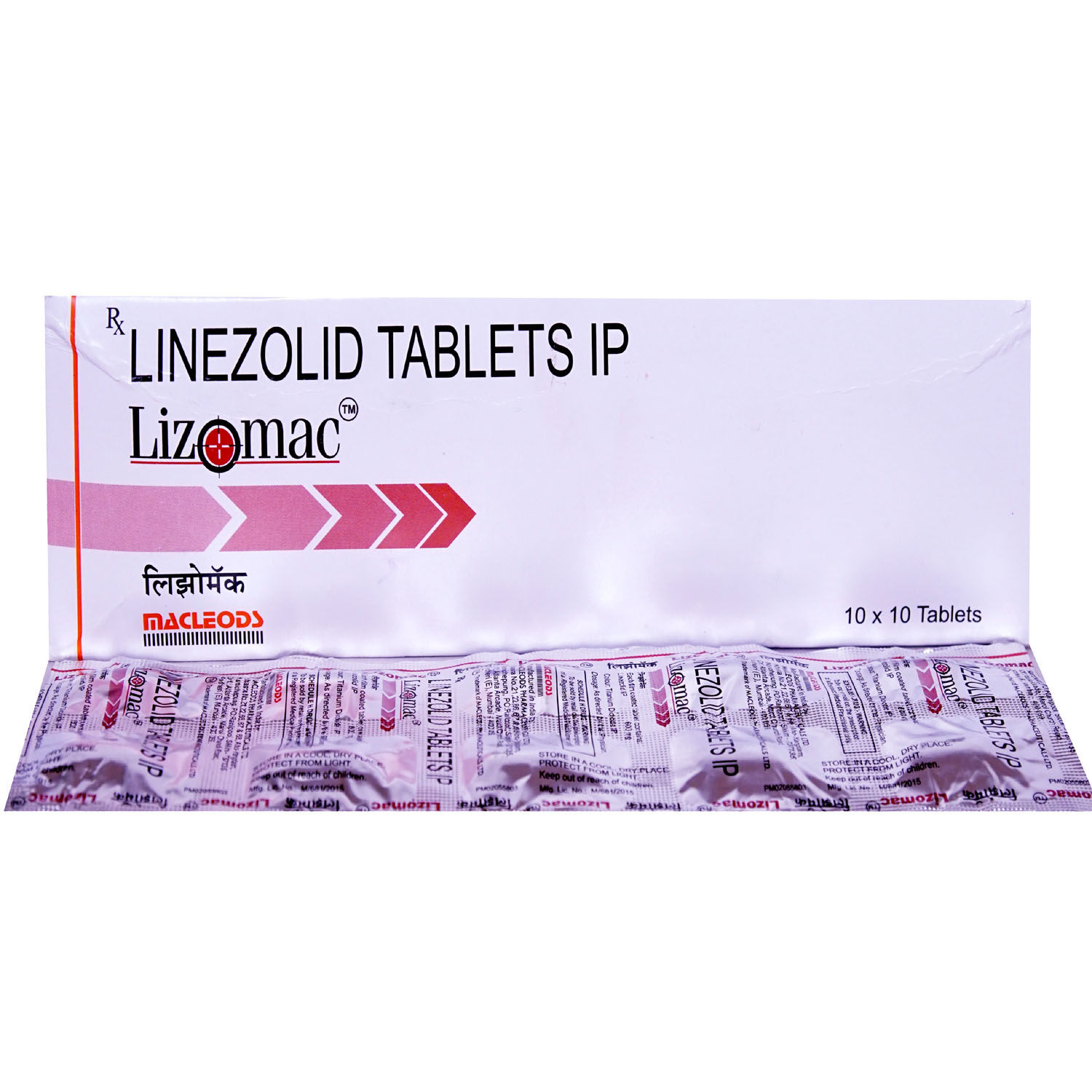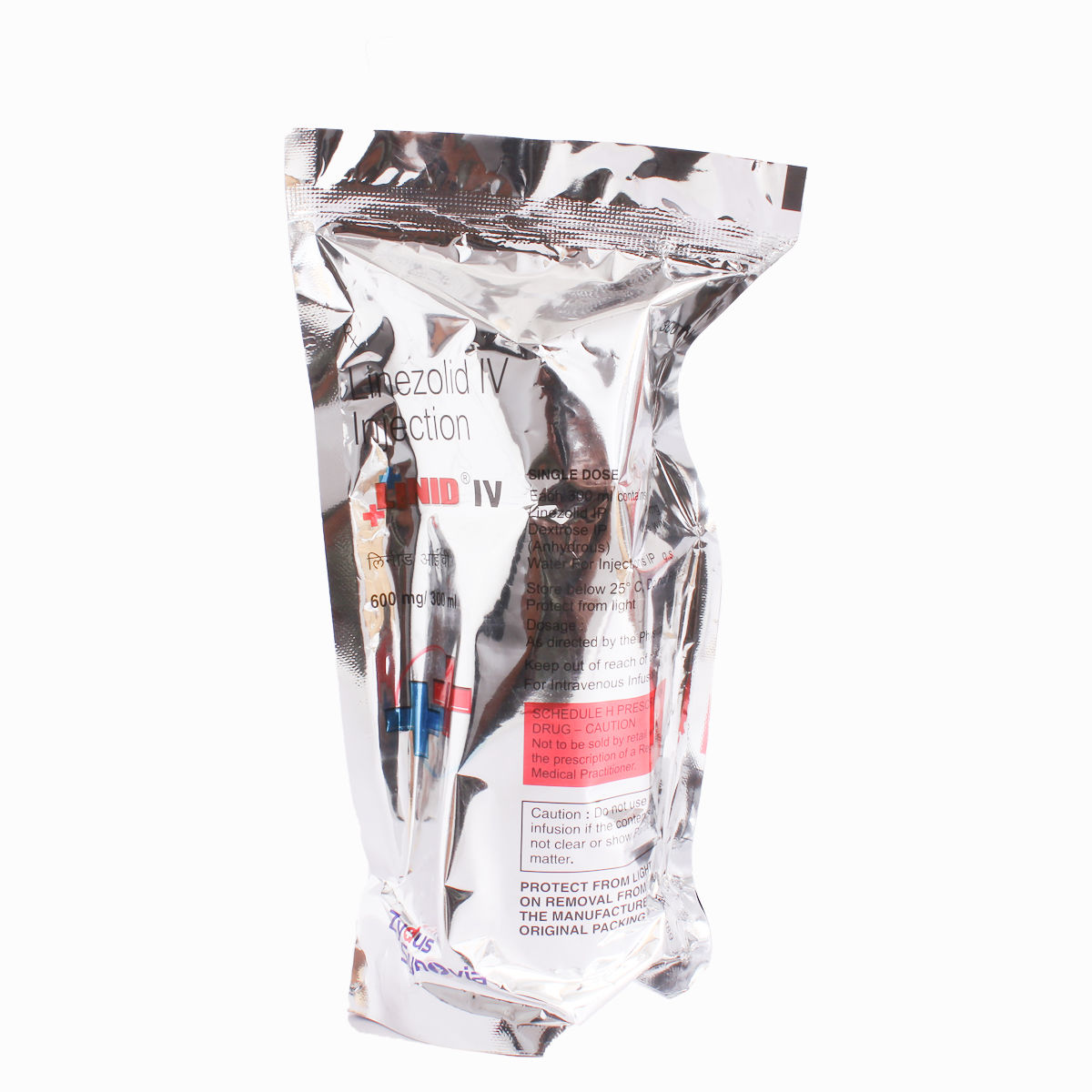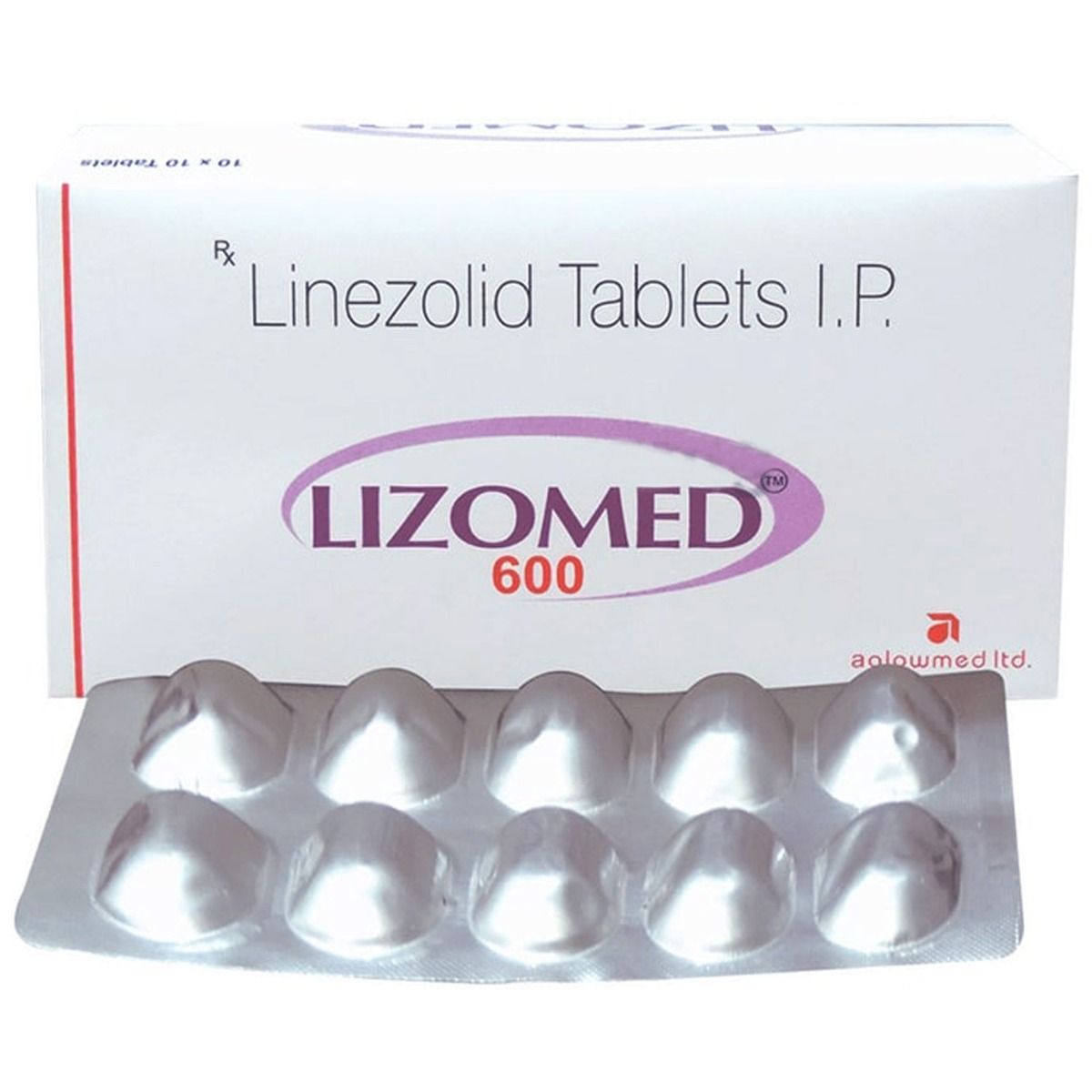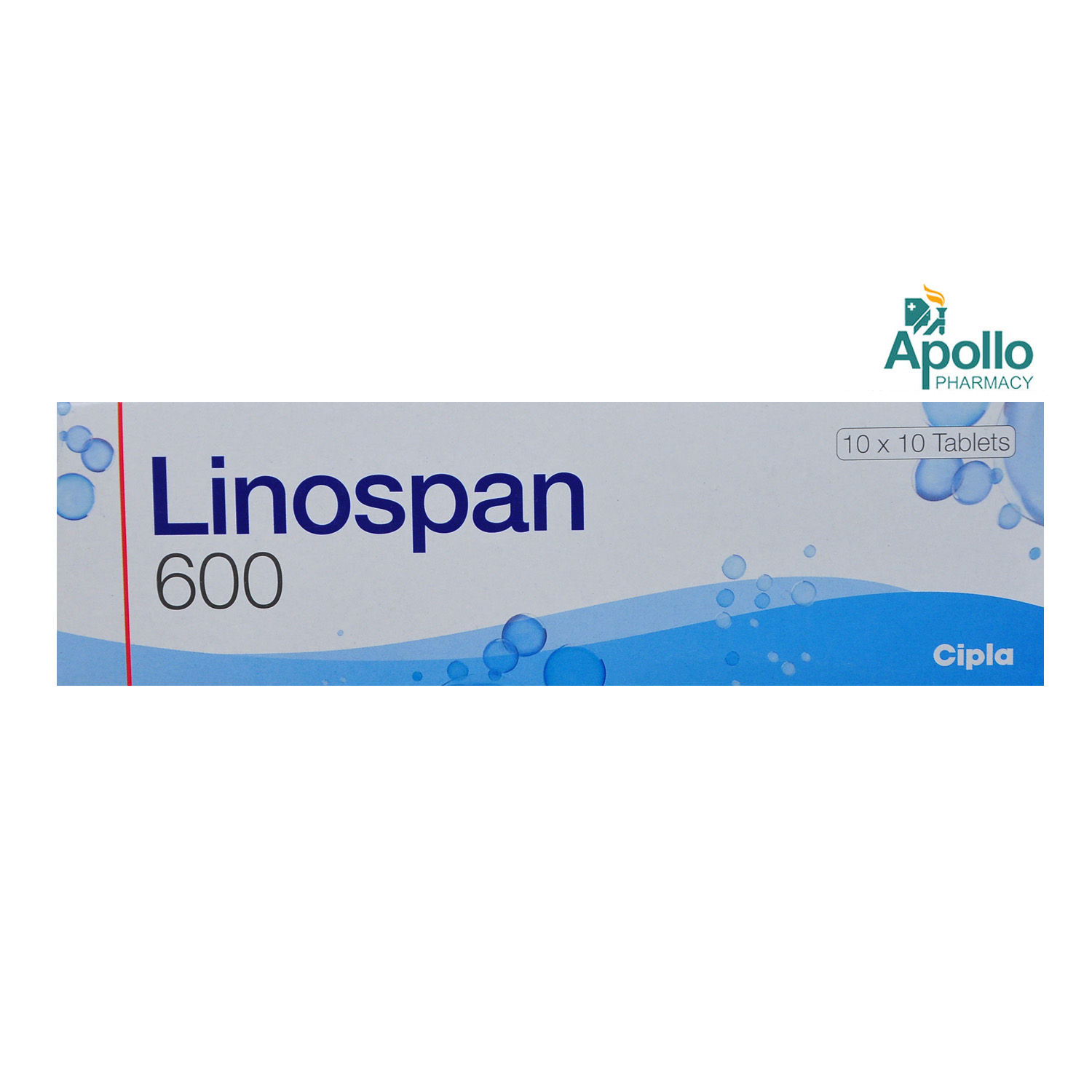Glezolid 600 mg Tablet 10's
₹320.58*
MRP ₹356.2
10% off
₹302.77*
MRP ₹356.2
15% CB
₹53.43 cashback(15%)
Free Delivery
With Circle membership
(Inclusive of all Taxes)
This offer price is valid on orders above ₹800. Apply coupon PHARMA10/PHARMA18 (excluding restricted items)
Know Your Delivery Time
Provide Delivery Location

Available Offers
 Prescription drug
Prescription drugWhats That

Secure Payment

India's Most Trusted Pharmacy

Genuine Products
Composition :
Manufacturer/Marketer :
Consume Type :
Return Policy :
Expires on or after :
About Glezolid 600 mg Tablet 10's
Glezolid 600 mg Tablet 10's is used to treat bacterial infections of the lungs (pneumonia), and skin. It is also used to treat infections which are resistant to other antibiotics. Bacterial infections are caused due to the multiplication of harmful bacteria inside or on the body. Glezolid 600 mg Tablet 10's does not work against infections caused by the virus, including cold and flu.
Glezolid 600 mg Tablet 10's contains Linezolid, which works by stopping the growth of infection-causing bacteria. Thus, it treats the infection.
In some cases, you may experience common side effects such as thrush (fungal infection), headache, metallic taste, diarrhoea, nausea, vomiting, dizziness, constipation, and indigestion. Most of these side effects do not require medical attention and will resolve gradually over time. However, you are advised to talk to your doctor if you experience these side effects persistently.
Do not take Glezolid 600 mg Tablet 10's on your own, as self-medication may lead to antibiotic resistance in which antibiotics fail to act against specific bacterial infections. Consult your doctor if you are pregnant or planning for pregnancy. Glezolid 600 mg Tablet 10's passes into breastmilk, so do not take Glezolid 600 mg Tablet 10's if you are breastfeeding. Avoid alcohol consumption while taking Glezolid 600 mg Tablet 10's as it may cause increased dizziness. Glezolid 600 mg Tablet 10's may cause dizziness and vision problems, so be cautious while driving and operating machinery.
Uses of Glezolid 600 mg Tablet 10's
Directions for Use
Medicinal Benefits
Glezolid 600 mg Tablet 10's belongs to the class of medicines called oxazolidinones used to treat bacterial infections of the lungs (pneumonia) and skin. It is also used to treat infections which are resistant to other antibiotics. Glezolid 600 mg Tablet 10's contains Linezolid, which works by stopping the growth of infection-causing bacteria. Thus, it treats the infection.
How Glezolid 600 mg Tablet 10's Works
Storage
Side Effects of Glezolid 600 mg Tablet 10's
- Thrush (fungal infection)
- Headache
- Metallic taste
- Diarrhoea
- Nausea
- Vomiting
- Dizziness
- Constipation
- Indigestion
What if I have taken an overdose of Glezolid 600 mg Tablet 10's
Drug Warnings
Do not take Glezolid 600 mg Tablet 10's if you are allergic to any of its contents; if you are taking or have taken monoamine oxidase (MAO) inhibitors in the last 14 days. Talk to your doctor if you have high blood pressure, overactive thyroid, phaeochromocytoma (tumour of adrenal glands), carcinoid syndrome (tumours of the hormone system), manic depression, schizophrenia, confusion or other mental problems. Inform your doctor if you bruise or bleed easily, have anaemia (low red blood cells), are prone to infections, have a history of seizures, if you are on dialysis, have diarrhoea, kidney or liver problems. Consult your doctor immediately if you experience a throbbing headache after eating or drinking, vision problems, loss of sensitivity or tingling/prickling sensation in arms and legs, persistent diarrhoea, nausea, vomiting, abdominal pain or rapid breathing. Consult your doctor if you are pregnant. Glezolid 600 mg Tablet 10's passes into breastmilk, so do not take Glezolid 600 mg Tablet 10's if you are breastfeeding. Glezolid 600 mg Tablet 10's may cause dizziness and vision problems, so be cautious while driving.
Drug-Drug Interactions
Drug-Drug Interactions
Login/Sign Up
Co-administration of Glezolid 600 mg Tablet 10's with Vortioxetine can increase the risk of serotonin syndrome (A condition in which a chemical called serotonin increases in your body).
How to manage the interaction:
Taking Glezolid 600 mg Tablet 10's with Vortioxetine can result in an interaction, it can be taken if a doctor has advised it. If you notice any of these symptoms like confusion, hallucination, seizure, extreme changes in blood pressure, increased heart rate, fever, excessive sweating, shivering or shaking, blurred vision, muscle spasm or stiffness, tremor, incoordination, stomach cramp, nausea, vomiting, and diarrhea consult a doctor. Do not discontinue any medications without consulting a doctor.
Taking these two together can cause your blood pressure to rise, a condition known as a hypertensive crisis.
How to manage the interaction:
Taking Caffeine with Glezolid 600 mg Tablet 10's is not recommended, please consult your doctor before taking it. It can be taken if your doctor prescribes it. Do not stop taking any medication without consulting your doctor.
Taking Glezolid 600 mg Tablet 10's with Fentanyl may increase the risk of serotonin syndrome(a condition in which a chemical called serotonin increase in your body).
How to manage the interaction:
Although there is an interaction between Glezolid 600 mg Tablet 10's and Fentanyl, they can be taken together if prescribed by a doctor. However, consult a doctor if you experience confusion, fever, excessive sweating, muscle pain, stomach cramps, vomiting, and diarrhoea. Do not discontinue any medications without consulting your doctor.
Coadministration of Glezolid 600 mg Tablet 10's and Tetrabenazine can increase the risk of high blood pressure.
How to manage the interaction:
Taking Glezolid 600 mg Tablet 10's and Tetrabenazine together is not recommended as it can lead to an interaction, but it can be taken if a doctor advises. However, if you experience any symptoms like severe headache, blurred vision, confusion, seizures, chest pain, nausea or vomiting, sudden numbness or weakness (especially on one side of the body), speech difficulties, fever, sweating, lightheadedness, and fainting, contact a doctor immediately. Do not discontinue any medications without consulting a doctor.
Using Glezolid 600 mg Tablet 10's with Trazodone can increase the risk of serotonin syndrome(a condition in which a chemical called serotonin increase in your body).
How to manage the interaction:
Taking Trazodone with Glezolid 600 mg Tablet 10's is not recommended but can be taken if prescribed by a doctor. However, consult a doctor if you have symptoms such as confusion, hallucination, fits, blood pressure alteration, increased heart rate, fever, excessive sweating, shivering or shaking, blurred vision, pain in the muscles or stiffness, incoordination, stomach cramps, nausea, vomiting, and diarrhea. Do not discontinue any medications without consulting a doctor.
Using Glezolid 600 mg Tablet 10's together with cyproheptadine may increase side effects of Cyproheptadine.
How to manage the interaction:
Taking Cyproheptadine with Glezolid 600 mg Tablet 10's is not recommended, consult a doctor before taking it. Contact a doctor if you experience dizziness, drowsiness, blurred vision, dry mouth, constipation, heat intolerance, flushing, decreased sweating, difficulty urinating, palpitation, rapid heartbeat, confusion, disorientation, and memory problems. Do not stop using any medications without talking to a doctor.
Taking Glezolid 600 mg Tablet 10's with Fluvoxamine can increase the risk of serotonin syndrome( a condition in which a chemical called serotonin increase in your body).
How to manage the interaction:
Taking Glezolid 600 mg Tablet 10's with Fluvoxamine is not recommended but can be taken together if prescribed by a doctor. However, if you experience confusion, hallucination (seeing & hearing things that do not exist), seizure(fits), extreme changes in blood pressure, increased heart rate, fever, excessive sweating, shivering or shaking, blurred vision, muscle spasm or stiffness, tremor (shaking of hands & legs), incoordination, stomach cramp, nausea, vomiting, and diarrhea. Do not discontinue any medication without consulting a doctor.
Using Carbamazepine with Glezolid 600 mg Tablet 10's can cause serotonin syndrome(a condition in which a chemical called serotonin builds up in your body).
How to manage the interaction:
Taking Carbamazepine and Glezolid 600 mg Tablet 10's together is not recommended, but it can be taken if prescribed by a doctor. However, if you experience symptoms such as confusion, hallucination, seizure, increased heart rate, fever, excessive sweating, shivering or shaking, blurred vision, muscle spasm or stiffness, stomach pain, nausea, vomiting, and diarrhea, consult the doctor. Do not discontinue any medications without consulting a doctor.
Coadministration of Glezolid 600 mg Tablet 10's with Imipramine might raise serotonin hormone levels in the body, affecting the brain and nerve cells.
How to manage the interaction:
Taking Glezolid 600 mg Tablet 10's and Imipramine together is not recommended as it can result in an interaction, but it can be taken if a doctor has advised it. However, if you experience confusion, hallucinations, seizures, extreme changes in blood pressure, increased heart rate, fever, excessive sweating, shivering or shaking, blurred vision, muscle spasm or stiffness, tremors, incoordination, stomach cramps, nausea, vomiting, and diarrhea, contact a doctor immediately. Do not discontinue any medications without consulting a doctor.
Using Glezolid 600 mg Tablet 10's together with mirtazapine might raise serotonin hormone levels in the body, affecting the brain and nerve cells. Increased serotonin hormone can lead to severe side effects.
How to manage the interaction:
Taking Glezolid 600 mg Tablet 10's with Mirtazapine can result in an interaction, it can be taken if a doctor has advised it. However, if you experience confusion, hallucination, seizure, extreme changes in blood pressure, increased heart rate, fever, excessive sweating, shivering or shaking, blurred vision, muscle spasm or stiffness, tremor, incoordination, stomach cramp, nausea, vomiting, and diarrhea contact your doctor immediately. Do not discontinue any medications without consulting a doctor.
Drug-Food Interactions
Drug-Food Interactions
Login/Sign Up
Pepperoni, Miso Soup, Natto, Ricotta, Salami, Shoyu, Shrimp, Stilton Cheese, Swiss Cheese, Tamari, Tempeh, Fish, Farm Cheese, Fava Beans, Fermented Seafood, Fermented Tofu, Gorgonzola Cheese, Chicken Liver, Chocolates, Cottage Cheese, Cream Cheese, Dried Sausage, Dry-Type Summer Sausages, Cheddar Cheese, Cashews, Camembert, Beef Liver, American Cheese, Almonds, Avocado
How to manage the interaction:
Taking high tyramine-containing food along with Glezolid 600 mg Tablet 10's can cause blood pressure to rise to exceedingly high levels, a condition known as a hypertensive crisis (Severely elevated blood pressure). Avoid high tyramine-containing food while taking Glezolid 600 mg Tablet 10's. Consult a doctor, if you experience severe headache, confusion, blurred vision, problems with speech or balance, nausea, vomiting, chest pain, convulsions, and sudden numbness or weakness (especially on one side of the body).
Diet & Lifestyle Advise
Antibiotics can alter the useful bacteria in the stomach, which help in digestion. Therefore, you are advised to take foods rich in probiotics, such as yoghurt/curd, kefir, sauerkraut, tempeh, kimchi, miso, kombucha, buttermilk, natto and cheese.
Eat fibre-rich food like whole grains, beans, lentils, berries, broccoli, peas and bananas.
Avoid foods rich in calcium, grapefruit and grapefruit juice, as they might hinder the absorption of antibiotics.
Avoid consumption of alcohol and usage of tobacco.
Habit Forming
Therapeutic Class
Glezolid 600 mg Tablet 10's Substitute

Lizolid 600 Tablet 10's
₹35.91per tabletLinid 600 Tablet 10's
₹35.96per tabletLinox 600 Tablet 10's
₹35.91per tabletLizoforce-600 Tablet 10's
₹35.91per tabletLNZ 600 Tablet 10's
₹35.96per tablet
Product Substitutes
Alcohol
Unsafe
Avoid consuming alcohol while taking Glezolid 600 mg Tablet 10's as it may cause increased dizziness.
Pregnancy
Caution
Glezolid 600 mg Tablet 10's belongs to pregnancy category C. Please consult your doctor if you are pregnant, your doctor will prescribe Glezolid 600 mg Tablet 10's only if the benefits outweigh the risks.
Breast Feeding
Unsafe
Avoid taking Glezolid 600 mg Tablet 10's if you are breastfeeding as it may pass into breast milk and could affect the baby.
Driving
Caution
Glezolid 600 mg Tablet 10's may cause dizziness and vision problems. So, drive only if you are alert.
Liver
Caution
Dose adjustment may be needed. Please consult your doctor if you have liver impairment/liver disease.
Kidney
Caution
Dose adjustment may be needed. Please consult your doctor if you have any concerns regarding this or if you have kidney impairment/kidney disease.
Children
Unsafe
Glezolid 600 mg Tablet 10's is not recommended for children below 18years.
FAQs
Country of origin
Manufacturer/Marketer address
Disclaimer
Author Details
We provide you with authentic, trustworthy and relevant information







